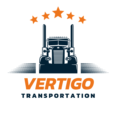
Owner-operators are individuals who own and operate their own businesses, typically in the transportation industry. They are self-employed professionals who own and maintain their trucks or other vehicles and provide transportation services to clients or companies.
One of the main advantages of being an owner-operator is the freedom and flexibility it offers. Instead of working for a company or being an employee, owner-operators have control over their schedules, routes, and business decisions. They have the autonomy to choose the type of loads they want to transport, negotiate rates, and build relationships with clients.
Being an owner-operator also means taking on additional responsibilities. Apart from driving, they are responsible for the maintenance and upkeep of their vehicles, including fueling, repairs, and compliance with regulations and safety standards. They must also handle administrative tasks such as bookkeeping, invoicing, and managing their business finances.
Financially, owner-operators have the potential to earn higher incomes compared to company drivers. Since they have more control over their rates and expenses, they can negotiate better contracts and keep a larger portion of the revenue they generate. However, it’s important to note that income can vary greatly depending on factors such as the type of freight, market conditions, operating costs, and the amount of time spent on the road.
Owner-operators can choose to work independently or lease their services to a larger transportation company. Leasing agreements can provide certain benefits such as access to established clients, maintenance programs, and administrative support. However, it’s crucial for owner-operators to carefully review and understand the terms of the lease agreement to ensure it aligns with their business goals and financial objectives.
Like any business endeavor, being an owner-operator comes with risks and challenges. Fluctuating fuel prices, changes in regulations, and market competition are just a few factors that can impact profitability. It requires strong business acumen, discipline, and adaptability to navigate these challenges successfully.
In recent years, technological advancements have also impacted the owner-operator landscape. The rise of digital freight platforms and load boards has provided easier access to freight opportunities and streamlined the process of finding and securing loads. Telematics and GPS technologies have improved efficiency and helped owner-operators optimize their routes and manage fuel consumption.
Overall, owner-operators play a vital role in the transportation industry. Their independence, expertise, and dedication contribute to the movement of goods and services across various sectors of the economy. While the profession requires hard work and careful management, it offers the opportunity for financial independence and the satisfaction of running one’s own business.
Sign up as an owner-operator at Vertigo Transportation in just two minutes!
